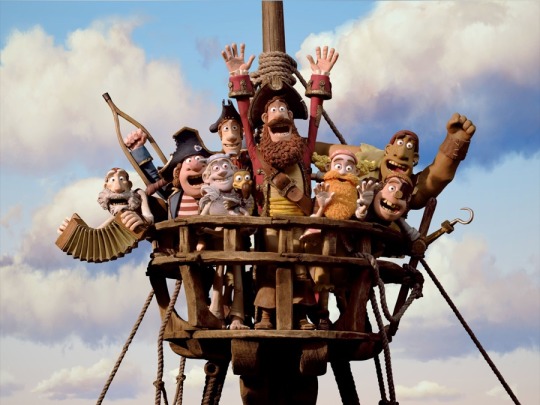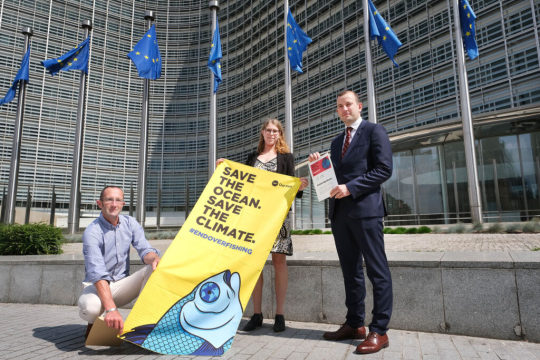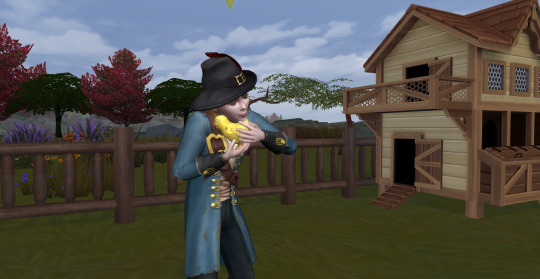#Fisheries Enforcement
Text
youtube
#youtube#usmilitary#Environmental Crime#Protecting Fisheries#Marine Resources#Wildlife Protection#Fisheries Enforcement#Criminal Activity#Texas Coast#Illegal Fishing#Illegal Activity#Maritime Law#Texas Waters#Coast Guard Patrol#Fishing Operation#Law Enforcement#Maritime#Illegal Fisheries.#Coast Guard#Ocean Conservation#Coast Guard Bust#Coast Guard Mission
1 note
·
View note
Text
How it started

How it's going

#my fun pirates in space story#has become one big environmental message#by torturing all my characters#the same way we torture fish#dont pollute the ocean!#dont overcrowd fish tanks!#enforce fishery laws!#dont descale fish as a flex for your restaurant!#original story: aquarius
5 notes
·
View notes
Note
do u have any sort of website that can tell me jobs in a small town? trying to write a story set in a small town but i cant come up with any ideas for jobs apart from the essential ones like police or hospital
Jobs in a Small Town
Government: mayor, city manager, city council member, city attorney, city clerk, code enforcement officer, customer service representative, finance director, fire chief/firefighter, paramedic, human resources manager, information technology department, librarian, municipal court clerk/administrator/judicial specialist/court security officer, parks and recreation director, planning and zoning director, police chief/officer or sheriff/deputy, public works director, utilities clerk, wastewater plant operator
Business: business owner/operator or employee (such as a clerk, receptionist, manager, or administrator) at a shop, restaurant, cafe, gas station, mechanic, tow truck, locksmith, landscaper/lawn care, handyman, florist, funeral home, pool cleaner, daycare center, grocery store, feed and pet store, car dealership, clothing boutique, ice cream parlor, liquor store, bar, nightclub, community theater, "big box store" (like Walmart), warehouse store (like Costco), movie theater, mini-golf course
Medical Services: hospital (administration, doctor, surgeon, nurse practitioner, nurse, nurse's aide, respiratory therapist, anesthesiologist, orderly, receptionist, lab worker, security, etc.) Doctor's office or urgent care (administration, doctor, nurse, nurse practitioner, receptionist, etc.) Dentist or orthodontist (administration, dentist/orthodontist, dental assistant, orthodontic assistant, receptionist, etc.) Nursing home/assisted living facility (administration, doctor, nurse, orderly, etc.)
Random: country club employee, dog walker, babysitter/nanny, home nurse, museum director/curator/specialist/employee, town archaeologist (if area is rich in history), industrial jobs (mining, factories/manufacturing, farming/crop production, fishing/fisheries), wedding coordinator, convention center director, attorney, judge, taxi driver, utility repair technician, railway worker, bus driver, school jobs (principal, teacher, teacher's aide, librarian, cafeteria worker, counselor, security officer, custodian), airport jobs (administrative, security, service provider/employee, airline worker, pilot, flight attendant, plane mechanic)
That's all I've got at the moment, but keep an eye on the comments in case others come up with ideas! :)
•••••••••••••••••••••••••••••••••
Have a writing question? My inbox is always open!
Visit my FAQ
Find answers fast on my Master List of Top Posts
Go to ko-fi.com/wqa to buy me coffee or see my commissions
2K notes
·
View notes
Text
Environmental groups are asking Ottawa to enforce its rules on an Alberta coal site that has started building an underground test mine without fisheries permits that officials have said are required.
“They can’t just sit back and wait for habitat destruction to occur,” said Ecojustice lawyer Dan Cheater. “We’d like to see them take action.”
Coalspur Mines is planning a large expansion of its Vista thermal coal mine near Hinton, Alta., which would make it the largest thermal coal mine in North America. The company is also planning an underground test mine on the site to determine the feasibility of subsurface mining.
In 2020, then-federal Environment minister Jonathan Wilkinson ordered a joint federal-provincial review of both the expansion and the test mine. That review collapsed last fall when the Supreme Court of Canada ruled Ottawa’s Impact Assessment Act was unconstitutional.
Continue Reading.
Tagging: @politicsofcanada, @abpoli
60 notes
·
View notes
Text
just found out NOAA has a 24-hour national fishery law enforcement hotline! where you can report tourists harassing wild dolphins! for which they can be fined as much as 100k! life is so beautiful
56 notes
·
View notes
Text
UNCLAS //N05752//
SUBJ: FINAL FAREWELL
1. I SERVED WITH HONOR FOR ALMOST FORTY-SIX YEARS, IN WAR AND PEACE, IN THE ATLANTIC AND PACIFIC. WITH DUTY AS DIVERSE AS SAVING LIVES TO SINKING U-BOATS, OCEAN STATIONS TO FISHERIES ENFORCEMENT, AND FROM TRAINING CADETS TO BEING YOUR FLAGSHIP. I HAVE BEEN ALWAYS READY TO SERVE.
2. TODAY WAS MY FINAL DUTY. I WAS A TARGET FOR A MISSILE TEST. ITS SUCCESS WAS YOUR LOSS AND MY DEMISE. NOW KING NEPTUNE HAS CALLED ME TO MY FINAL REST IN 2,600 FATHOMS AT 22-48N 160-06W.
3. MOURN NOT, ALL WHO HAVE SAILED WITH ME. A NEW CUTTER CAMPBELL BEARING MY NAME, WMEC-909, WILL SOON CONTINUE THE HERITAGE. I BID ADIEU. THE QUEEN IS DEAD. LONG LIVE THE QUEEN.
The final message of the United States Coast Guard Treasury-class Cutter USCGC Campbell, broadcast 29 November 1984. Commissioned in 1936, she was called the 'Queen of the Seas'. When she was decommissioned in 1982, she was the oldest vessel in the Coast Guard.
36 notes
·
View notes
Text
I'm getting a degree in fisheries and wildlife conservation and they're making me learn about wildlife law enforcement jobs. can't I be excused from this on account of being a gay commie who hates cops and all
#not exactly a commie but not getting into leftist shit rn this aint about that#like if someone was doing drugs in a park id let them and if someone killed a great white shark I'd just kill them. it's not a good fit#not really i dont believe in punitive justice but i would probably have to be held back bc in the moment id punch them
11 notes
·
View notes
Text
Environment commissioner warns Canada failing to protect commercially valuable fish
The federal government is biased against listing commercially valuable fish as species at risk and needing protection, environment commissioner Jerry DeMarco said in a new audit published Tuesday.
The audit of Canada's efforts to protect aquatic species at risk was one of six new environmental reports tabled in the House of Commons.
It found Fisheries and Oceans Canada was very slow to act when the national committee that is responsible for assessing whether species need protection says a particular aquatic creature or plant is in danger.
Climate Barometer newsletter: Sign up to keep your finger on the climate pulse
And when that assessment relates to a fish with significant commercial value, the department's default appears to be against listing the fish as needing special protection.
That includes the Newfoundland and Labrador population of Atlantic cod.
Overfishing led to a moratorium on commercial fishing of Newfoundland cod in 1992, and twice since then the Committee on the Status of Endangered Wildlife in Canada assessed it as being "endangered," meaning it faces imminent danger of going extinct.
Once that assessment is made, Fisheries and Oceans Canada must review the assessment and decide whether to list the species for special protection under the Species at Risk Act. Listing the species in the act as endangered would prevent it from being killed, harmed, harassed or captured.
The first assessment on Newfoundland cod came in 2003, and it took three years for Fisheries and Oceans to review the finding. In 2006, the federal department decided against adding it to the Species at Risk Act list, and allowed some inshore fishing and Indigenous harvesting to continue.
Capital Dispatch: Sign up for in-depth political coverage of Parliament Hill
In 2010, the committee assessed the Newfoundland cod as endangered a second time. Twelve years later, Fisheries and Oceans still has not finished a review to determine what to do with that assessment.
DeMarco's audit looked at nine fish, two mussels and a sea turtle that the endangered wildlife committee assessed as needing protection. Five of the fish were marine species with significant commercial value, and in all five of those cases, the department opted against listing the fish as a species at risk.
That includes Newfoundland cod, steelhead trout, the Okanagan population of chinook salmon, yellowmouth rockfish, and Atlantic bluefin tuna.
The other four fish, both mussels and the loggerhead sea turtle were deemed to have no significant commercial value, and all seven were recommended to be listed as species at risk by Fisheries and Oceans.
DeMarco also found it took the department far too long to conduct its own reviews.
He said Fisheries and Oceans hasn't finished its review for half the 230 aquatic species that the wildlife committee recommended for an at-risk designation since the Species at Risk Act took effect in 2004.
Furthermore, the department was found to have big gaps in what it knows about species that need protection, and not enough staff to enforce protections when they are put in place.
"A bias against protecting species of commercial value under the Species at Risk Act, significant delays in listing species for protection, gaps in knowledge about species, and limited enforcement capacity all have adverse effects on ecosystems and communities," DeMarco said in a written statement.
The commissioner's fall audits also looked at policies to manage low- and intermediate-risk radioactive waste, which accounts for 99.5 per cent of all radioactive waste in Canada.
DeMarco said Natural Resources Canada, the Canadian Nuclear Safety Commission, and Atomic Energy of Canada were doing a good job managing the waste.
This report by The Canadian Press was first published Oct. 4, 2022.
from CTV News - Atlantic https://ift.tt/1RhLFS4
81 notes
·
View notes
Link
Over a decade, manta ray populations increased significantly in Raja Ampat archipelago in Indonesia, highlighting the importance of long-term conservation and management measures such as well-enforced Marine Protected Areas (MPAs) and fisheries regulations, says researcher Edy Setyawan, of the University of Auckland’s Institute of Marine Science.
34 notes
·
View notes
Text
1638
From 1638 to 1670, the English government sought to enforce the migratory fishery by making fishing admirals enforce laws against transporting passengers to Newfoundland. There were fears that if overwintering crews had legal rights, they would have all the best shorelines.
The fishing admirals did little, mainly settling disputes over the right to use particular fishing rooms.
Last (for now) AI generated picture, of Hannah and William.

1638 was an uneventful year. In summer, Hannah found that she was expecting again. The new baby won't replace the son they lost, but it gives them hope for the future.


#newfoundland decades#sims 4 decades challenge#sims 4 historical#1600s#1630s#sims 4 legacy#gen 1#gameplay#13
1 note
·
View note
Text
The main contractor in charge of constructing the Site C hydroelectric dam project near Fort St. John in northeastern B.C. has been hit with a $1.1 million fine for dumping contaminated drainage water into the Peace River.
The penalty was imposed after Peace River Hydro Partners pleaded guilty in provincial court in Fort St. John on Monday to depositing a deleterious substance into fish-bearing waters, a violation of the federal Fisheries Act, according to Environment and Climate Change Canada,
The federal agency says its enforcement officers discovered that in 2018, the contractor discharged 3,300 cubic metres of drainage water with a high concentration of metals into the Peace River due to their water treatment system's inadequate capacity.
"A sample of the drainage water collected on Sept. 9, 2018, determined that it contained a concentration of aluminum that was acutely lethal to fish," said Environment and Climate Change Canada in a news release on Wednesday. [...]
Continue Reading.
Tagging: @politicsofcanada
#cdnpoli#British Columbia#Fort St. John#Peace River#waste management#water pollution#renewable energy
33 notes
·
View notes
Text
Hey folks here’s me going mad because of beavers and beaver history :
In the late 1800s, beavers nearly went extinct. It can be hard not to view the U.S as the nexus of evil, when it has some of the most dramatic examples of how our pursuit of earning tokens to acquire happiness and safety dismantles the very ecosystems and ways of life that are actually able to make us happy and safe
Beavers. It’s nuts, I seem to have the expressive capabilities of a granite rock-face normally but I read about North American ecological destruction and I’m inconsolable.
Beavers! the way we found creatures that in incredible ways heart-achingly resemble us, and we turned them into fucking hats because deceived people believed that tokens would make them happy
And that we had been made so miserable in the first place by unhealthy ecosystems disturbed by early modern imperialism,,, people were moved to America to help colonise and exploit under the guise of a better life and now the states is going to be hit so terribly hard by climate change because the wetlands it had been for 20 million years are gone
It hits me that it seems to correlate how ecosystems get worse and people get sadder and both are because of the same root cause
It’s just so picture perfect in the states. The book Eager by Ben Goldfarb talks abt how lakota ppl have long extinct species of Beaver surviving in their language and stories.
The word they have for devil’s corkscrews, which are fossils we’ve found of ancient paleocastor burrows from before beavers evolved to move to water, translates to BEAVER CABIN
The youngest devil’s corkscrew we’ve found is 24 million years old.
That gives you some sense of how long humans have lived in those lands without ripping it to shreds. That’s also roughly also how long we think beavers have shaped the ecosystem of North America.
24 million years is how long life evolved in those wetlands. And how long human social traditions in the region developed around them to. These animals are our ecological siblings! I can’t begin to imagine how hard it would be for us to live sustainably safe and happy without them here
I feel rocked by a fluctuation between seeing human roles in ecosystems as curative vs palliative
Like there *are* examples of us living well, and we are massively adaptable!!! But the way we turned beavers into fucking hats enforces for me that as long as we live for profit, any ecological work can only be palliative. Palliative meaning ‘treating the symptoms not causes’. It’s care for the dying. Latin root being ‘to cloak.’ I guess that might give us more time, but it feels so rare that those who actually know the symptoms can also treat the causes
Curative work is possible, and incredible work is being done to restore beavers populations! (it won’t be the same without the American Chestnut but hey, one at a time) But that work is impeded on all fronts by finance. It’s not that I don’t think curing is possible, that’s a doomer approach I hate. But it’s only possible if we get rid of the mental virus of capital
I’ve seen this in my dad’s sustainable fisheries work his whole life. And the ghost in every haunted house is that any positive change has to compromise with organisations that won’t pay people enough to even afford the food they catch. And those people are the ones who will starve first when made to fish more sustainably, even though that needs to happen to avoid eventually being unable to fish at all. Like god we are so sick with this, and all my dad can do is focus on the fish because politics aren’t what he trained in.
And he’s probably helping more in fisheries than he would politics. I think people should do what they are good at so they can bend those skills towards the project of creating conditions in which capital can be overthrown.
I’ve put off reading theory for a long while, because I figured I’d do more good in the world learning about the things I’m good at then pretending I’m a politician, but I don’t think any profession has a truly comfortable future unless capital is dismantled.
Downplaying that at all feels like coping to me, but it also feels fanciful to say I want to change it without saying what I want to change it to.
So anyway. Anti-capitalist is a great start but eventually I need to read theory so I can start saying Marxist or something else with my chest. I want to say love and community will lead us, but I need to know what name love goes by in a political sense.

2 notes
·
View notes
Text
The recent security agreements between Papua New Guinea and the United States are a good deal for the planet—but a tough pill for Beijing to swallow, and one that might come with potential blowback.
The new agreements accelerate coastal security strategies that also help with climate change adaptation by protecting vulnerable fisheries. These new moves point toward greater opportunities for further climate mitigation and resilience, using existing climate programs in Papua New Guinea and international climate financing. Papuan Prime Minister James Marape has often spoken of his enthusiasm for climate financing, which is also a high priority for the whole of the Blue Pacific Continent 2050 strategy that was endorsed and launched last July 2022 by a coalition of island nations. With the Biden administration set to host a major U.S.-Pacific island summit this fall, American interest in Pacific climate adaptation is growing.
But one aspect of these programs that American officials discuss only behind closed doors is their role in countering Chinese influence in the Pacific. Some of the programs are aimed at curbing environmental damage committed largely by Chinese companies through questionable fishing practices and widespread logging and mining. Pushing Chinese firms with dubious environmental practices out of Papua New Guinea and elsewhere also helps reduce the role of Chinese money, and influence, in Pacific politics—a double win for the United States.
Marape has said Papua New Guinea holds 13 percent of the world’s rainforest, laying out greater goals in the Green Climate Fund roadmap. While a total logging ban still seems a long way away, especially in the absence of more climate financing, the recent deals set the course for greater climate solutions in partnership with the United States and others.
Canberra is also negotiating a security deal with Papua New Guinea. Port Moresby has delayed signing it for more “domestic processes,” but the two have had a binding climate action plan in place since 2018. Australia enacted specific logging guidelines for forestry in Papua New Guinea in 2012 and updated its fishing protection cooperation agreement in 2021.
As the largest importer of both legal and illegal timber, China revised its Forest Law in 2019 to ban the “purchase, process or transport” of illegal logs. China’s Ministry of Foreign Affairs has repeatedly stated that it opposes illegal fishing, logging, and mining—but there’s little sign of any willingness to restrain Chinese firms operating overseas.
Marape has certainly courted Chinese funders, but American diplomats have felt encouraged by comments such as the following: “The USA remains the leader of the free world. For those of us who believe in democracy, for those of us who believe in a Christian worldview, we share many commonalities with the United States of America.” That comment came even after U.S. President Joe Biden canceled a visit to Papua New Guinea at the last minute, thanks to the debt ceiling crisis.
Amid a raft of agreements, two that stand out are the Defense Cooperation Agreement and the Agreement Concerning Counter Illicit Transnational Maritime Activity Operations. According to U.S. Secretary of State Antony Blinken, these “will boost cooperation between Papua New Guinea Defense Forces and the U.S. Coast Guard to help build up the Defense Forces’ capacity, and help combat illegal, unreported, and unregulated fishing.” The second agreement, in particular, will have a major impact on the islands’ threatened fisheries, particularly their tuna stocks.
According to the U.S. State Department, this deal “will enable PNG to participate in the U.S. Coast Guard’s Shiprider program, enhancing PNG’s organic enforcement capabilities, improving overall maritime domain awareness, and helping PNG protect its sovereignty.”
This means the two coast guards can work together to board ships suspected of illegal activities—including potentially directly engaging with China’s aggressive fishing militia that threatens to deplete fishing stocks globally.
These moves are likely to prove popular. Papua New Guinea’s citizens are furious about losing money from illegal, unregulated, and unreported fishing (IUU) and want greater security solutions. IUU is also becoming a key climate crisis issue, as it imperils food security at a time when warming waters are killing reefs. Clashes between fishing fleets and locals also make maritime crimes more likely. Chinese firms do little research on or engagement with locals, often prompting an angry response. Marape has already had to step into the uproar over a planned China-backed commercial fishery in the Torres Strait.
Since taking office in 2019, Marape has sought to balance business needs and environmental protection—a difficult feat given the mix of the pandemic and the mutual desire of Beijing, Washington, and Canberra to sway the strategically critical country.
At a press conference after the signing, Marape stressed his desire to avoid picking a side, saying, “What we’ve signed does not encroach—or affect, rather—Papua New Guinea’s own relationships we have with other nations we trade with, or we have relationships with, be it military or government-to-government relations. Period.”
At a time of growing U.S.-China tensions, however, staying out of the conflict is becoming increasingly hard for Pacific nations. In response to the signing, China’s Foreign Ministry played it cool in its messaging, saying, “China is not opposed to countries’ efforts to grow ties with Papua New Guinea and other Pacific island countries,” but the state-affiliated Global Times took a sharp swipe at the United States and the Biden administration.
Regional tensions were stoked in 2017 when then-U.S. President Donald Trump withdrew from the Paris Agreement, angering Pacific Islanders facing the brunt of rising seas and increased super cyclones. This set a course for Beijing to undermine Pacific nations’ previous recognition of Taipei, as happened in both the Solomon Islands and Kiribati in 2019.
In the Solomon Islands, tensions stirred over Prime Minister Manasseh Sogavare and payments made to his administration from Beijing from many island residents, with protests bubbling over into several days of anti-government violence in the capital city of Honiara in November 2021.
Many Chinese-owned businesses were torched, and Beijing ultimately drafted a secret security agreement with Honiara that was leaked in the Solomons in April 2022, alarming many Pacific countries. A month later, China sought a regional security pact with Pacific nations that failed to materialize. This has galvanized many Western governments to increase outreach and aid—particularly climate change financing and security deals—to Pacific island nations.
As these deals deepen, Beijing’s response is likely to mix promises with threats, as happened this year with then-Micronesian President David Panuelo. Small countries may not want to pick a team—but both Beijing and Washington are increasingly unwilling to let them stay on the sidelines.
2 notes
·
View notes
Text
ACHIEVING THE AICHI BIODIVERSITY TARGETS THROUGH INTEGRATED COASTAL MANAGEMENT.
The ASEAN Biodiversity Outlook (ABO) confirms that the region failed to meet the target of significantly reducing biodiversity loss by 2010. Natural wealth continues to degrade at a relatively high rate, with loss of 26.46% of mangroves in Southeast Asia and 33.40% in East Asia from 1980 to 2005, or an annual change rate of 1.06% and 1.34% respectively (FAO, 2007). Coral reefs and seagrasses are also experiencing increased threats through habitat change, sea level rise and other impacts of climate change, over-exploitation and pollution. The Protected Areas Gap Analysis in ASEAN region (ACB, 2010), reports severe under-representation of marine habitats and ecosystems and absence of protection of 78%, or more than 6 million hectares, of the 82 identified marine Key Biodiversity Areas (mKBAs). For those protected mKBAs, management concerns remain an issue. Despite the increase in the proportion of MPA areas within the territorial waters of some countries, there have been notable declines in the quality and quantity of mangrove, seagrass and coral reef habitats within these MPAs. As a consequence, the population, health and resiliency of many threatened species, such as the Chinese White Dolphin, remain a matter of concern.
Although some coastal areas with sustained integrated management efforts have shown signs of environmental improvements, many threats to protecting and sustaining coastal and marine ecosystem services persist across the region, including:
Land use transformation in coastal and upland areas
Land reclamation in coastal and wetland areas
Deforestation, erosion and sedimentation
Degradation, destruction and over-exploitation of natural resources, including fisheries
Continued trade in wildlife and endangered species
Increasing populations and economic activities in coastal areas
Conflicting uses and demands among users for limited coastal and marine resources, such as tourism, port development/marine transportation and fisheries
Inequitable access to resources, resulting in food security and sustainable livelihood concerns, especially among fishing communities
Marine pollution from land-based and sea-based sources
Climate variation and change including extreme weather events.
The root causes for these continuing threats can be traced to one or more of the following:
Lack of national policies on coasts and oceans and outdated national policies that conflict with the objectives of biodiversity conservation and sustainable development of coastal and marine resources
Inadequate institutional mechanisms to facilitate coordination across communities, sectors, local and national governments, and their respective agencies and boundaries
Inadequate legislation and the capacity to enforce regulations
Insufficient mechanisms and incentives to engage local governments and the business sector in conservation investments
Limited access to training and capacity building opportunities to build up human and financial capital to effectively manage protected areas
Inadequate resources and capacity for scientifically sound environmental monitoring and reporting, coupled with lack of coordination of environmental monitoring efforts across agencies, programs and projects
Inadequate funding for applied research on social and economic values of coastal and marine ecosystems and their contributions to sustainable development and security
Limited knowledge or awareness of the value of coastal ecosystems services and the consequences of their degradation or loss
Limited knowledge sharing on best practices and case studies within countries and across the region
Limited buy-in by local governments and local stakeholders on the benefits of MPAs. In the face of complex threats to the globally important marine and coastal biodiversity in the East and Southeast Asia region, this project seeks to add value by applying a systematic approach to strengthening the management effectiveness of MPAs under a variety of political, social, economic and environmental conditions to implement the SDS-SEA.
The project will demonstrate the use of a conservation-focused integrated coastal management (ICM) framework and process to support and strengthen actions identified in national biodiversity strategies and action plans (NBSAPs). On-the-ground conservation actions will not only factor in the capacities and priorities of local communities, but also take into account critical issues such as climate change adaptation, disaster risk reduction, food security, alternative livelihoods and pollution reduction, and incorporate these into the development plans of local governments.
ACHIEVING THE AICHI BIODIVERSITY TARGETS THROUGH INTEGRATED COASTAL MANAGEMENT.
#National biodiversity strategies and action plans (NBSAPs)#biodiversity conservation#biodiversity#coastal areas#Integrated coastal management (ICM)#ASEAN Biodiversity Outlook (ABO)#Marine Habitat#brunei darussalam#AICHI Targets#Projects#Marine Key Biodiversity Areas (mKBAs).
3 notes
·
View notes
Text

𝒅𝒆𝒖𝒄𝒂𝒍𝒊𝒐𝒏, 𝒔𝒐𝒏 𝒐𝒇 𝒑𝒓𝒐𝒎𝒆𝒕𝒉𝒆𝒖𝒔 𝒂𝒏𝒅 𝒇𝒂𝒕𝒉𝒆𝒓 𝒐𝒇 𝒎𝒂𝒏𝒌𝒊𝒏𝒅.
this character is neutral, with no allegiances to any faction, and does not engage in criminal activity.
suggested faces — please note, this character must be 30+ years old. casey deidrick; boyd holbrook; caio castro; berk cankat; charles michael davis; john cho; steven yeun; diego luna; pedro pascal; nathan parsons; ryan reynolds; scott speedman; ben robson; winston duke; john boyega; daniel kaluuya; lewis tan; michiel huisman; santiago cabrera; jeffrey dean morgan; ricky whittle; michael b. jordan; winston duke.
suggested occupations. long haul truck driver; construction worker or foreman, or a contractor; carpenter; brick or stonemason; employee or owner of a local microbrewery; employee or owner of a local fishery, or a fishmonger; ferry operator; first responder, though not a police officer or law enforcement agent; optionally, a reserve or discharged member of the armed forces
𝒕𝒉𝒊𝒔 𝒔𝒌𝒆𝒍𝒆𝒕𝒐𝒏 𝒊𝒔 𝒐𝒑𝒆𝒏.
ʙʀᴀᴠᴇ ɴᴇᴡ ᴏʟʏᴍᴘᴜꜱ : ᴀ 21+ ᴍᴏᴅᴇʀɴ ɢʀᴇᴇᴋ ᴍʏᴛʜᴏʟᴏɢʏ ᴅɪꜱᴄᴏʀᴅ ʀᴏʟᴇᴘʟᴀʏ.
athens, new york: an island city, all trees and marble, glass and steel and highrises set against an ocean skyline. bustling and loud, crowded, but not without a bizarre sense that it must have sprung up overnight, somehow, when surely it must have always been here, no? on a clear night, you might even be able to see the lights of its more famous cousin, new york city, across the water…if you squint hard enough. it may not get as much attention as the shiny apple across the hudson, but those not so blinded by the lights must certainly have been coming here for years.
is there something in the water here, too? no one leaves, not in any meaningful way anyway. feels like it has a special way of pulling you back in, if you try.
they, that is anyone who was anyone or paid even an iota of attention to the evening news,, called him the minotaur. the media does love a catchy nom de guerre, doesn’t it? sells newspapers like hotcakes in the morning. ambrosia, whether it’s the latest designer drug trend or the latest pestilence sweeping the streets of athens, just depends on how tightly you clutch your pearls on sundays. must infuriate the police, don’t it? that without fail, by the time they arrive to any crime scene at all, all that’s left is the heap of little cream-coloured business cards, the red lines of a labyrinthine logo more taunting than they are helpful. between an epidemic of pearlescent powder, neatly parceled out in small plastic baggies, a tide of crimson bull graffiti, casinos and bordellos and the nightlife (oh my!), it’s no small wonder they call this an atlantic sin city.
it’s a vice eat dog world, ain’t it? and anyone who calls athens home is just living in it. powerless, with no memory of their past lives, what's a god gotta do to survive?
#city rp#crime rp#literate rp#relaxed rp#discord rp#open skeleton#open male#open male skeleton#male skeleton#demigods#deucalion
0 notes